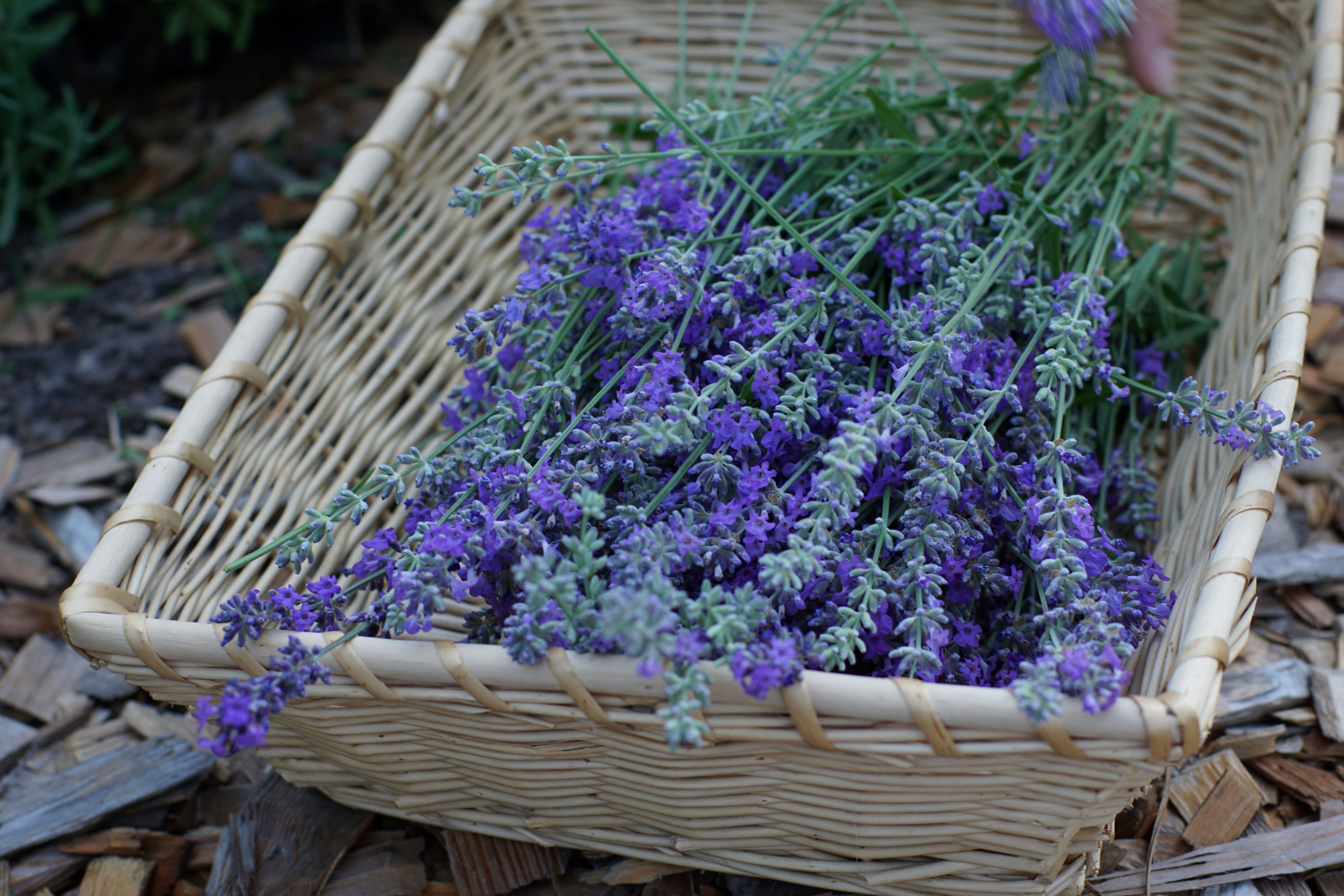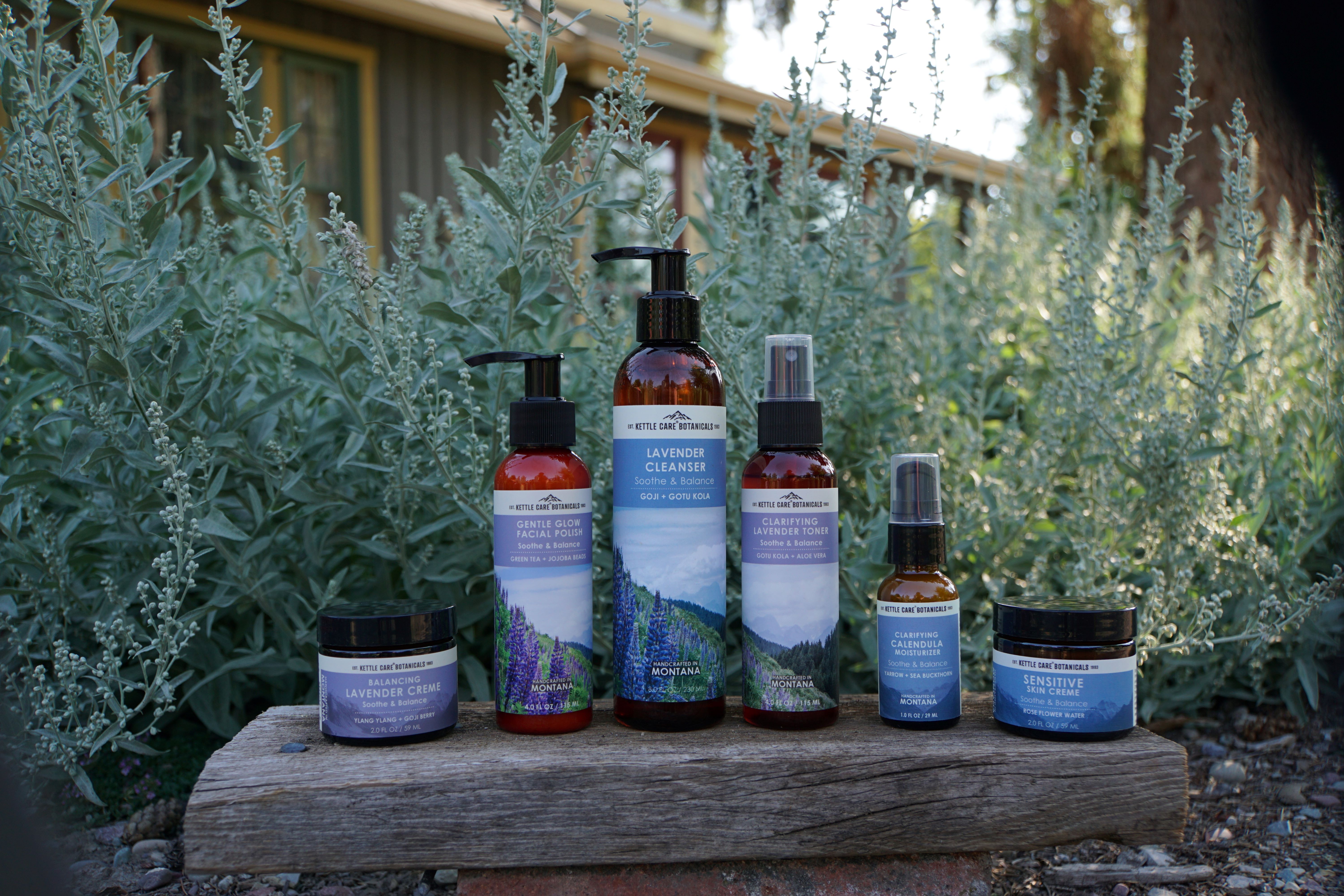Posted by The Kettle Care Team on Jul 24th 2023
Get to Know Lavender—History’s Favorite Botanical!
Here at Kettle Care®, we spend most of our days working with botanicals—a fancy word for ingredients made from plants. We love them so much we made them part of our company’s name. We officially became Kettle Care® Botanicals last year. (Check out our post about the power of botanicals to learn more about why we made the switch.)
Kettle Care® began with a goal—to formulate skincare as Mother Nature intended—and we cherish the ingredients that have made that vision possible. On this blog alone, we’ve discussed the power of Raw Montana Beeswax and explored the history of Peppermint and Horse Chestnut extracts.
But of all of our beloved ingredients, Lavender is our favorite.

Lavender is one of the most popular essential oils in the world—and has been for over 2,500 years. The ancient Egyptians used it in their mummification process. The Greeks used it as a remedy for pretty much any ailment you can imagine. And the Romans used it in healing baths. In fact, “Lavender” comes from the Latin “lavare”: to wash or bathe.
It is no wonder Lavender is history’s favorite botanical. It fights some of life’s most important battles. It’s anti-anxiety and antidepressant, antimicrobial and antibacterial, antispasmodic and anti-inflammatory, to just name a few. With a list of properties like that, how could anyone be anti-lavender?
What Can Lavender Do for You?
- Soothes light burns, insect bites, and bruises
- Alleviates insomnia, headaches, stress, and hypertension
- Leaves your home, your clothes, and your skin smelling fresh as a garden!
- Acts as an aromatic in your favorite dishes: Lavendula Augustifolia is often used in cocktails, mocktails, and other beverages as well as sorbets, honey, and roasted potatoes. It blends well with lemon, lime, thyme, and other fresh herbs. When using this botanical in your cooking, look for lavender with a deep blue color and a spicy, minty scent rather than an overly floral aroma.

What Can Lavender Do for Your Skin?
- It balances oil production: Lavender acts as an adaptogenic, helping your body resist the damaging effects of stress and normalizes skin’s oil production, if too dry or too oily.
- Clarifies acne-prone or irritated skin: Anti-inflammatory and antimicrobial, Lavender kills bacteria before it can invade your pores, leaving your skin clear and healthy.
- Soothes dry skin and treats eczema: Lavender hydrates and soothes stubborn skin, and its antifungal and antibacterial properties help fight eczema.
- Prevents premature aging: Rich in antioxidants, Lavender protects your skin from the free radicals that cause your skin to age.
- Acts as an ideal ingredient in skin-loving recipes: There is a reason we love Lavender here at Kettle Care®. This superstar ingredient is perfect for everything from face cleansers to night creams to facial steams. Check out the recipes below for proof.
Try These at Home
Here are two fun recipes you can make at home—starring our favorite ingredient.
Lavender Facial Steam
- Add a handful of lavender blossoms and leaves to a small bowl or basin.
- Pour 2 cups of steaming water over the lavender.
- Lean your face over the bowl, and drape a towel over your head to seal in the steam.
- Enjoy 10 minutes of bliss.
- Clean your face with a gentle cleanser, tone, and apply a rich moisturizer before bed.
Lavender Sugar Scrub
Ingredients:
- ½ cup Sugar
- 2 tbsp Glycerin
- 2 tbsp Sunflower oil
- 10 drops Lavender essential oil
- Lavender petals (OPTIONAL)
Directions:
- Combine sugar, glycerin, sunflower oil, and lavender essential oil in a bowl.
- Spoon mixture into black jar, adding a pinch of lavender petals.
- Apply in the shower for smooth skin that always feels fresh.
A Word to the Wise
There are a million reasons to love Lavender. Although this ingredient does wonders for most people, it might not be for everyone. Some people with hay fever or asthma may be allergic. And while it’s safe for the average person to apply Lavender essential oil directly to their skin, you should always dilute it before applying it to a baby or child’s skin.
For more information about the history and benefits of Lavender, see our “Meet the Ingredients” blog post.

